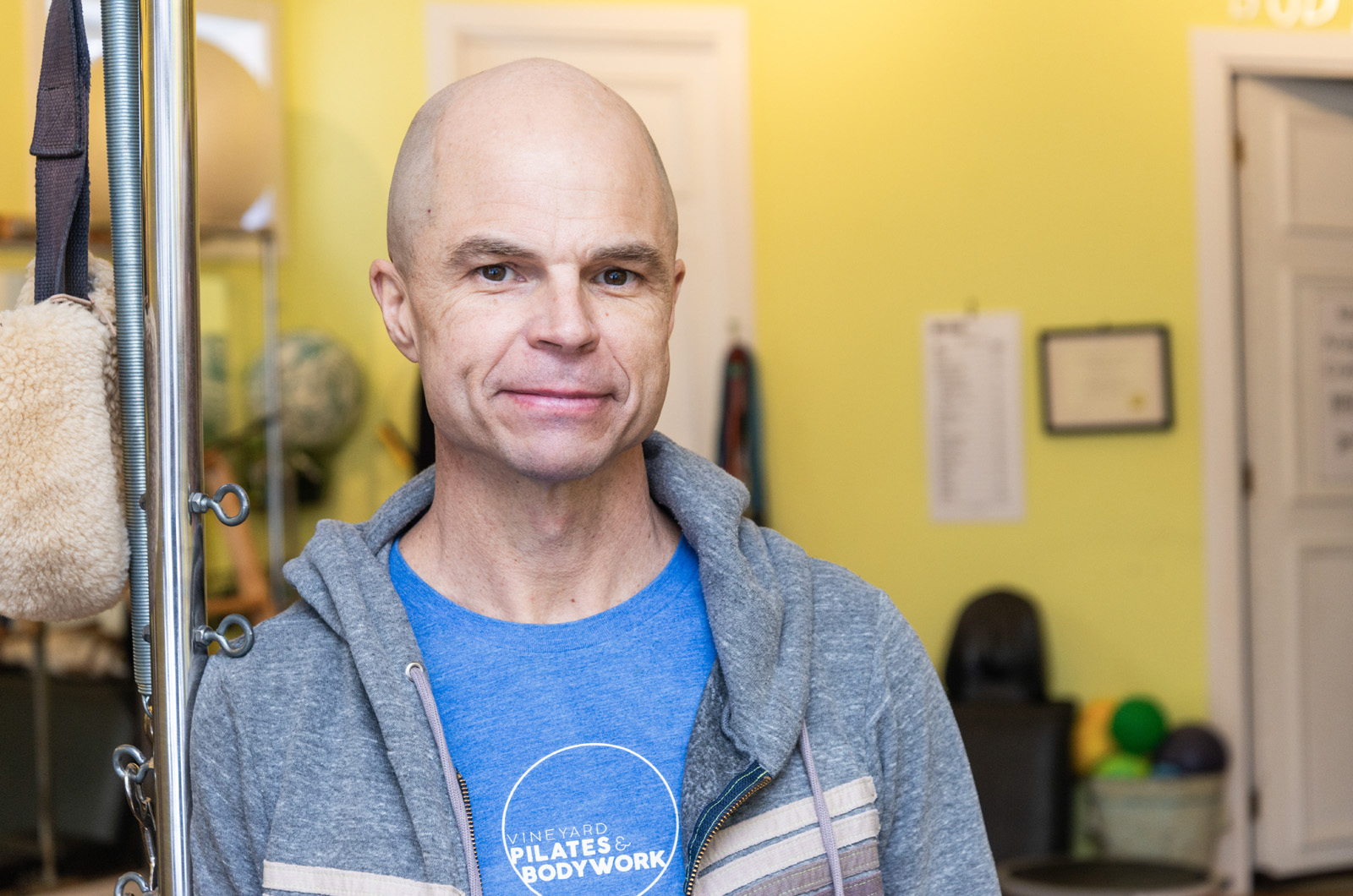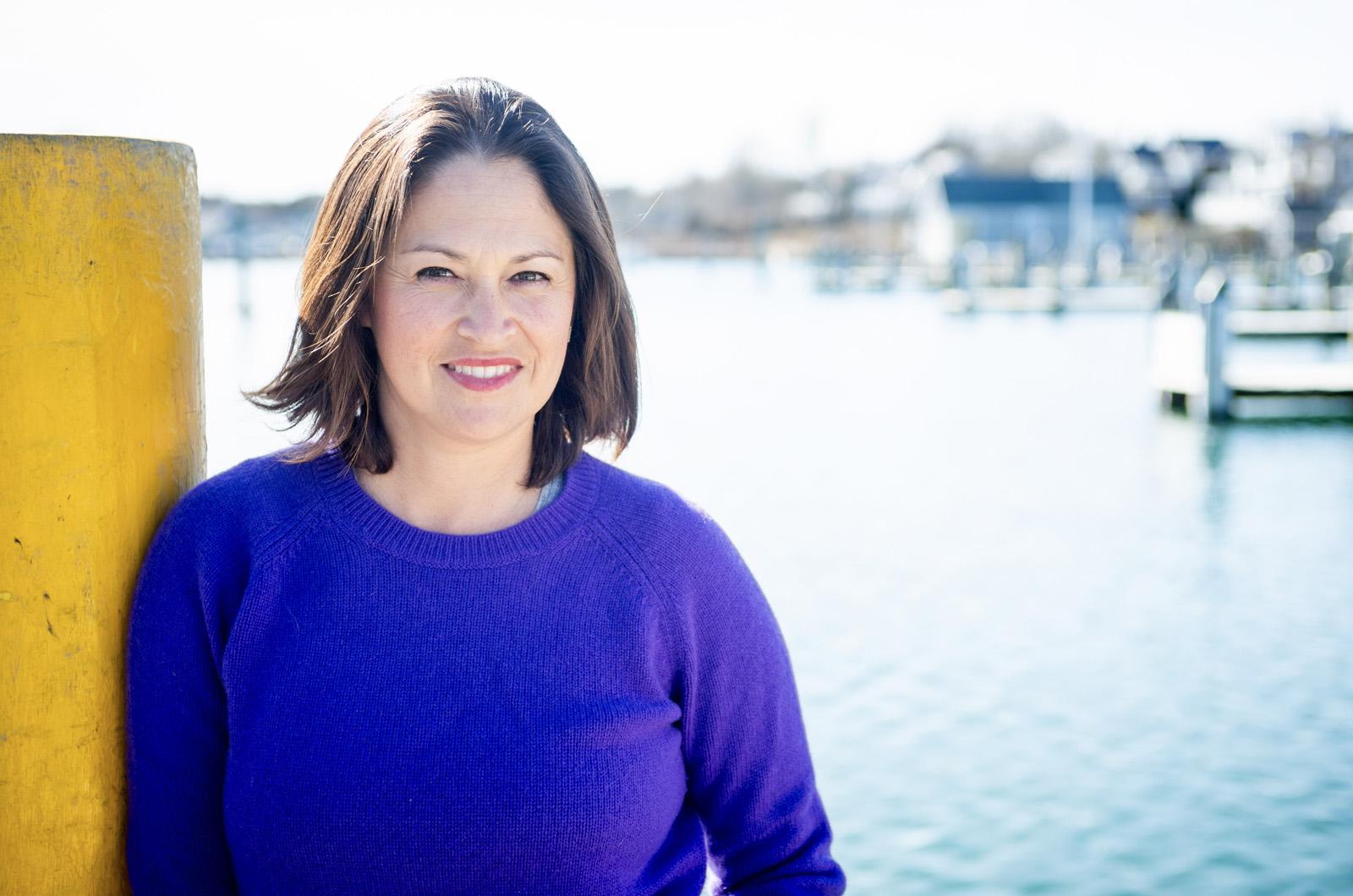Jessica Mason’s life hinges on a magic number. It’s the number she gets after a team of medical professionals run a series of tests on her overall health and kidney function. It’s the number that tells her that her kidneys are failing, and she will have to go under the knife to receive a new one.
For Ms. Mason, that number is 20. Most healthy people’s kidneys have a score of around 60. She is currently at 17, give or take a few points.
“I’m relatively lucky,” she said. “If you met me, you wouldn’t know I was sick.”
Ms. Mason was diagnosed with an autoimmune disease nine years ago, a condition that has slowly eroded her kidneys’ ability to function. In 2023 her number dropped and she made a call to her community, creating a video about her medical journey and posting it on Facebook.
The response, she said, was overwhelming.
“The amount of support was unbelievable,” she said. “It was all of the good things that come with living in a small community like ours.”
Ms. Mason joins dozens of Islanders seeking organ transplants, braving ferry schedules, off-Island hospital systems and seemingly interminable waiting lists to get the lifesaving care they need.

“It’s hard for people because you have to save your own life,” she said of the organ donor process. “The need to be the protagonist in your own story...feels big. And it’s hard, especially when you’re sick.”
Stefan Knight’s magic number is 15, the number that shows his liver is in decline and he will need to seek a transplant soon. A young, healthy person has a score of 5, he said. Like Ms. Mason, Mr. Knight was diagnosed with an autoimmune disorder 11 years ago, but last October suffered a complication with his bile ducts that kicked off his search for a donor.
“I was airlifted to Boston with internal bleeding,” he said. “Being on an Island, word travels.... People at Mocha Mott’s would come up to me and ask what was going on. And I started to open up.”
Mr. Knight also shared his story online and received a “huge” outpouring, he said.
“One day, I just got a text, ‘I’m here with my friend in the hospital and her 25-year-old son just died. Is there any way we can get the liver over to you?’” he said. “I didn’t know the woman at all...It was a moment of ‘Wow.’”
Other Islanders have been more private about their journeys. Just over a year ago, Jessie Child noticed he was feeling more fatigued than usual after a long day of work as a stone mason.
“I thought it was just a normal part of getting older,” he said. “Like, I guess this is just turning 40.”
One day, he went to the emergency room with a bad case of stomach cramps. The nurses found that his bloodwork was off, and after a trip to MGH, he came back diagnosed with vascolitis, an autoimmune disorder that was targeting his kidneys.
After less than a year with the diagnosis, Mr. Child started dialysis last month and is need of a new kidney immediately. Although he can undergo the treatment at home rather than a hospital, his deteriorating condition also prevents him from lifting heavy objects — which his profession requires. His kidney function is down to just 8 or 10 per cent.
“I honestly thought I was as healthy as I could be,” he said.
Unlike Ms. Mason, Mr. Child is not on any social media and has only recently started to publicly talk about his experience. He had hoped to find a donor within his own relatives, but after learning that his family members were ineligible to donate, his situation became increasingly dire. Mr. Child has the rare O blood type, and the waitlist for a deceased donor of that type can take over 10 years.
“I watch everything I do at this point, but I can only do so much,” he said. “As soon as you go on dialysis, the clock is ticking.”
These experiences are part of a nationwide increase in organ transplants. In 2023, patients received 46,632 organ transplants — the highest on record out of 11 consecutive record-setting years.
Live donor transplants are also on the rise. While most live donor transplants are kidney transplants, 2023 also saw the highest number of live donor liver transplants on record.
When seeking an organ transplant, patients can receive transplants from donors who are living or deceased. Receiving an organ through a deceased donor is an unpredictable, opaque process, particularly for Islanders who must travel across water to the nearest hospital that can perform the operation, Ms. Mason said.
Patients can sit on the waiting list for years without knowing when they might be next. When they do approach the top of the list, hospitals rarely give more than a few hours of notice that an organ is available, causing a mad scramble to the ferry and beyond. Even then, the hospital might cancel the operation last-minute if they find a better match.
“Luckily, everyone has two kidneys,” Ms. Mason said.
A transplant from a living donor, aside from being much easier to schedule, has a higher health outcome than an organ from a deceased donor, meaning patients can go years, even decades before having to go through the process all over again. Still, Ms. Mason and Mr. Knight will have to be on immunosuppressants for the rest of their lives so their bodies don’t rebel against the foreign organ.
While finding a live donor to donate a kidney is more common, a liver transplant can come from a living donor, too. Healthy livers have the ability to regenerate themselves, meaning donors only have to give up a piece of their liver to make a difference.
“Within two weeks, 80 per cent of the donor’s liver will grow back,” Mr. Knight said. “Within a few months...we will both have full livers.”
Aside from being a genetic match, the liver also has to be an appropriate size match, since a liver only knows how to grow to its original size.
“I couldn’t get a liver from some 6’4, 250-pound guy,” Mr. Knight said. “It would grow to be too big for my body.”
Both Ms. Mason and Mr. Knight said they have heard from dozens of close friends, family members and strangers interested in donating once they put out the call. Among those who reached out to help was Ms. Mason’s close friend Rebekah Thomson, who made the short list of potential donors. For the past year, Ms. Thomson has undergone testing at Martha’s Vineyard Hospital and MGH in Boston to determine her candidacy.
The process, Ms. Thomson said, has been exceedingly thorough and respectful, even providing her with a rigorous, top-to-bottom health examination. In one instance, the evaluation helped Ms. Thomson to catch an early health problem.
“I slack on my health care sometimes and this was a kick in the pants,” Ms. Thomson said.
Although the tests were spread out over the course of a year, overall Ms. Thomson spent about 10 hours undergoing tests and evaluations, plus one full day of tests in Boston. Aside from making sure Ms. Thomson is in top physical condition, MGH has also worked to make sure she is mentally prepared for the surgery, she said.
“Their focus has always been, ‘Is this going to be a good decision for me?’” she said. “They want to make sure I don’t feel coerced or pressured...that I’m truly on board.”
Next week, Ms. Thomson and Ms. Mason will head to Boston to receive the final test of compatibility to determine that they are a good match. If all goes well, they will head into surgery together at Ms. Thomson’s earliest convenience.
But even if Ms. Thomson turns out to not be an ideal match, she can donate her kidney regardless. Through the National Kidney Registry, Ms. Thomson can donate her kidney on behalf of Ms. Mason to another compatible patient in need. Ms. Mason, in turn, gets a voucher to enter into the registry and receive a matching kidney as soon as it’s available.
“It’s a great resource not many people know about,” Ms. Mason said. “Through the registry, your odds of finding a great match are a lot higher.”
Since posting her video on social media, Ms. Mason has heard stories from other Islanders seeking organ transplants, and worked to spread awareness on how important and accessible being a donor can be. Mr. Knight, likewise, has continued to share his story.
“If we can help people see that your friends and neighbors need kidneys...we collectively as a community would be better off,” Ms. Mason said.





Comments (2)
Comments
Comment policy »